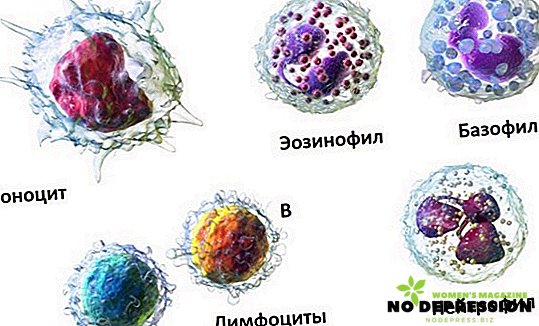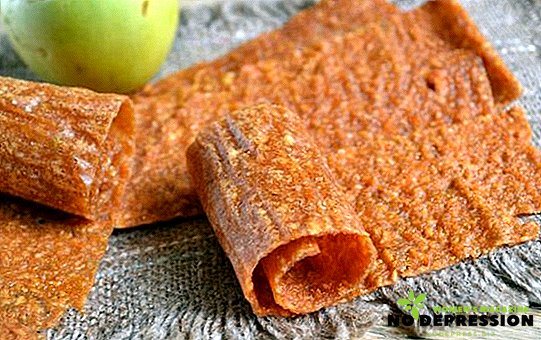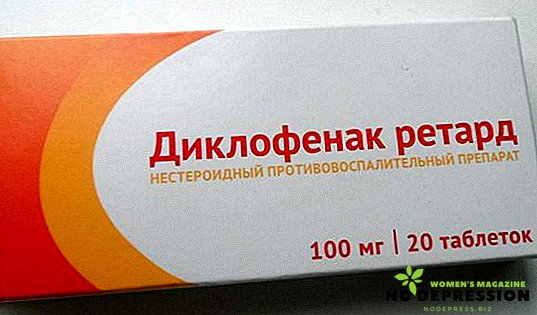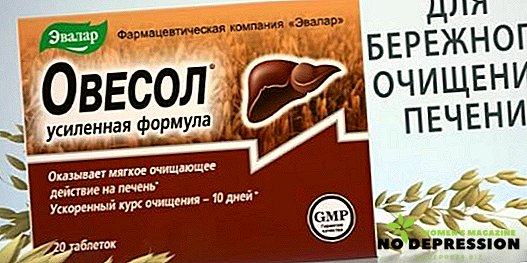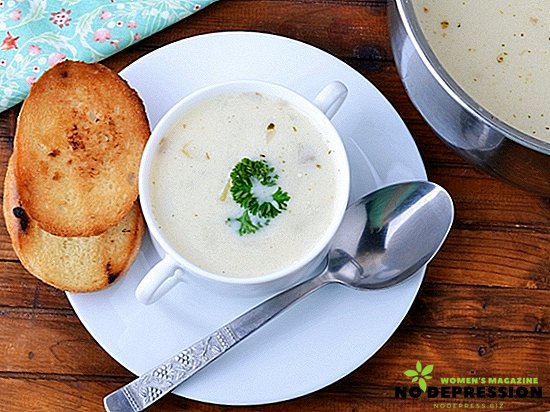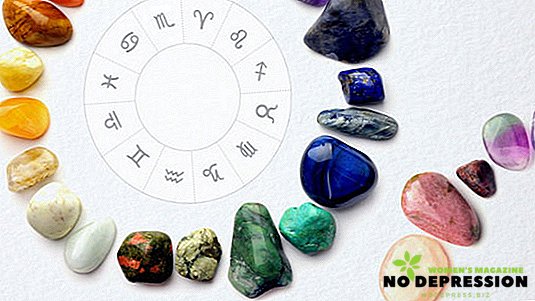Does the kid complain of sore throat? Is it hard for him to swallow, and his throat reddened? The reason for this may be angina, or acute tonsillitis.
In addition to these symptoms, the baby's general condition worsens, weakness appears, and the temperature rises. These manifestations of indisposition can be signs of other diseases, for example, ARVI (acute respiratory viral infections).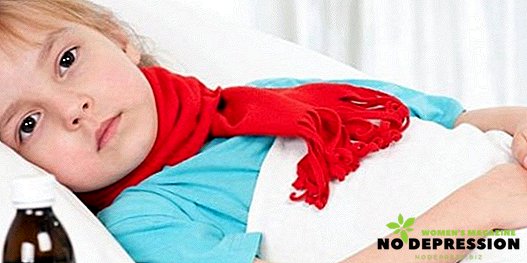
But for tonsillitis is characterized by an increase and redness of the tonsils, as well as the appearance of purulent deposits on them. Only a doctor can correctly diagnose, examining the throat and palate of the child.
Types of angina in children, the first signs and symptoms
If the temperature of the baby has risen to 38.5 degrees, the lymph nodes in the neck are swollen, it is hard for him to swallow, and he complains of pain in his stomach, you need to call a doctor.
If there is an increase in temperature to 40 degrees, it is urgent to call the ambulance.
Causes of angina can be:
- Reduced immunity, especially in the autumn or winter;
- Seasonal virus;
- Streptococcus bacteria;
- Irritants (smoke, mold, dust, etc.);
- Communication with the patient (acute tonsillitis is transmitted by airborne droplets).

Doctors distinguish three main types of angina:
- Catarrhal sore throat. This is the most common and mild form of angina. It is characterized by an increase in temperature up to 37-38 ° C, minor sore throat, enlarged lymph nodes and redness of the tonsils. This form of the disease lasts 1-2 days. But if you do not go to the doctor, the disease can turn into a more severe form;
- Follicular tonsillitis. With this form of sore throat, the condition worsens dramatically, sore throat is more severe, and the temperature rises to 40 ° C. Toddlers may feel pain in the joints, nausea. Purulent follicles are visible on the surface of the tonsils, lymph nodes are greatly enlarged. The disease lasts 7-8 days;
- Lacunar angina. In this form of the disease, pus of gray-yellow color covers almost the entire surface of the tonsils. The doctor can gently remove purulent spatulas. The course of the disease is 7-8 days.
Angina may also occur against the background of other diseases, such as diphtheria, scarlet fever, influenza, mononucleosis, etc.
Treatment of angina in children at home
They treat a sore throat at home after the doctor prescribes the necessary drugs to the child. It is important to comply with all the recommendations of the doctor, adhere to bed rest, take vitamin complexes.
Catarrhal sore throat
In catarrhal angina, treatment should begin immediately after its detection, until inflammation has become purulent. Acute tonsillitis can be diagnosed only by a doctor; parents often confuse a sore throat with SARS or pharyngitis.
 At the initial stage of therapy, the child must be provided with certain conditions - fresh air in the room, abundant drinking, and staying in bed.
At the initial stage of therapy, the child must be provided with certain conditions - fresh air in the room, abundant drinking, and staying in bed.
When angina should take antihistamines, such as Suprastin, Tavegil, Claritin, Zodak. They prevent the negative reactions of the child's body to drugs.
When dealing with angina, special attention should be paid to the treatment of sore throat. Doctors recommend giving pills or lozenges for sucking, for example, Septolete, Falimint, Strepsils, Lizobakt, Faringosept, Grammidin, Ajisept, Sebedin.
A good effect in the treatment of acute tonsillitis is given by sprays for the throat, such as Ingalipt, Hexoral, Aqualor, Tantum Verde.
Gargles
A prerequisite for a quick recovery is gargling with medicinal solutions:
- Furacilin solution;
- Iodinol solution;
- hydrogen peroxide solution;
- salt, soda and iodine;
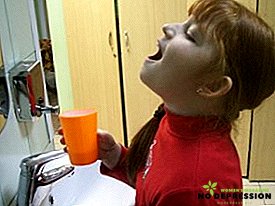
- Miramistin solution;
- Chlorhexidine;
- eucalyptus infusion;
- rotokan solution;
- decoction of medicinal herbs - sage, chamomile and calendula;
- Chlorophyllipt;
- Stopangin.
If a sore throat passes easily, without fever, the doctor may prescribe a local antibiotic, for example, spray Bioparox, as well as inhalation with saline.
Folk remedies
In addition to medical treatment, catarrhal sore throat in a child can be treated with traditional methods that can enhance the effect of therapy. But before using them, it is better to consult a doctor. Should take into account the individual intolerance of certain products. For children, you can use the following methods:
- Rinse with beet juice. You need to grate the beets, squeeze out the juice, warm up a little and offer the child to rinse;
- Tea with raspberry jam or lime blossom. It is not recommended at high temperatures. In a glass of tea add no more than one tablespoon of jam. For making lime tea, pour boiling water over the raw material and insist for about an hour;
- Gargling with cranberries and honey. For a glass of warm water take 100 ml of cranberry juice and a spoonful of honey;
- Rinse onion peel. Pour 0.5 liters of water with two tablespoons of onion peel, boil and infuse for 3-4 hours;
- Cut a hole in a black radish with a knife, pour two or three tablespoons of honey into it, close the lid, let it stand for a day. Give the baby a teaspoon three times a day;
- Combine aloe juice with honey in the ratio of one to one, and this infusion to lubricate the tonsils of the child.

Follicular and lacunar tonsillitis
These types of sore throats are more difficult. The high temperature rises, which kiddies after a year are recommended to shoot down after 39 ° C. Newborn babies wipe with water, and babies after a year - with vodka. If such methods do not help to reduce the temperature, you must give the child antipyretics.
If the temperature rises above 38 ° C, you must give the child antipyretic drugs - Nurofen, Paracetomol, Aspirin. For children, there are drugs in the form of syrups or candles.
With such forms of sore throats, doctors prescribe antibiotics. It is impossible to get an antibiotic without the recommendation of the doctor!
Acute tonsillitis
In acute tonsillitis, doctors usually prescribe penicillin antibiotics. They are more effective and more easily tolerated by children. You can take them regardless of the meal:
- Flemoxine Soluteb (Amoxicillin);
- Augmentin (suspension);
- Ecoclav;
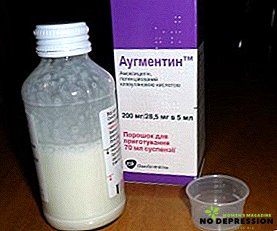
- Amoxiclav
If the child does not tolerate penicillins, then antibiotics are prescribed from a number of macrolides:
- Sumamed;
- Macropene;
- Hemomitsin.
In rare cases, for allergies to both penicillins and macrolides, cephalosporins are prescribed:
- Cefixime-Supraks;
- Cephalexin.
The effectiveness of treatment depends on the correctly selected antibiotic therapy. Drugs need to drink only the course prescribed by the doctor.
When taking antibiotics should also give the child probiotics. For example, Hilak Forte, Bifiform, Linex.
Well, be sure to vitamin complexes - Centrum, Vitrum, Complivit and others. And also more fresh fruit.
What can you eat and drink with angina
In acute tonsillitis, abundant drinking is indicated for the baby. Therefore, you need to pay special attention to drinks. It will be useful to give the child tea with lemon, raspberries, jelly, juices, warm milk with honey, fruit drinks, broths, boiled water.
From the diet of the child to exclude fried foods, mostly cooked, stewed or cooked dishes for a couple. Doctors recommend feeding the child with the following dishes:
- Low-fat soups (vegetable or meat);
- Meat and fish. Well suited meatballs, meatballs, zrazy, meatballs, fish patties, steamed. You can make various casseroles with meat and vegetables;
- Various cereals;
- White bread (but not the first freshness, preferably yesterday). Butter pastries should be excluded for the period of the disease;
- Ryazhenka, kefir, snowball;
- Omelette, boiled eggs;
- Stewed or steamed vegetables;
- Apples, pears (preferably baked in the oven).
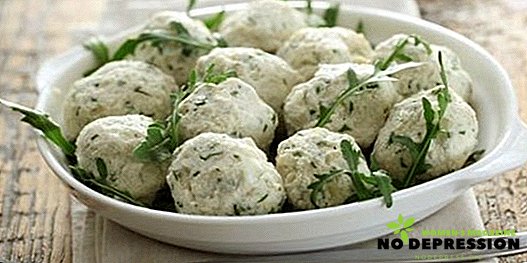
Complications of sore throat
If the child often has a sore throat, this may indicate the presence of chronic tonsillitis.
The most common complications after a sore throat are otitis or ear inflammation, lymphadenitis (inflammation of the lymph nodes), laryngeal edema, mediastinitis (spread of pus to the deeper parts of the neck).
These are local complications that affect organs nearby the throat. In addition to them, tonsillitis can adversely affect the work of the heart (rheumatic heart disease), kidney (pyelonephritis), brain (meningitis), pain in the joints (joint rheumatism) can occur.
To avoid complications after recovery, you should immediately make an ECG, pass general tests and appear ENT.
In the next video - tips on how to treat a sore throat, from Dr. Komarovsky.






